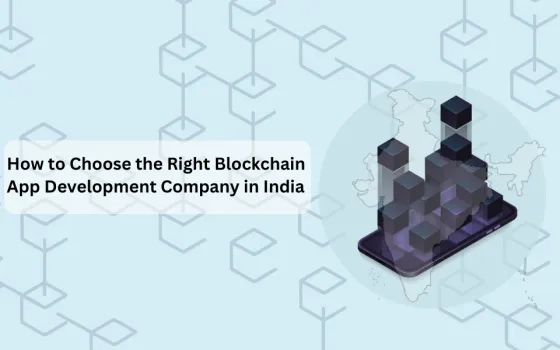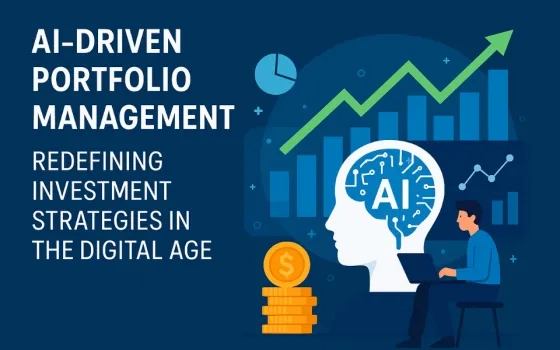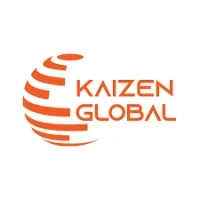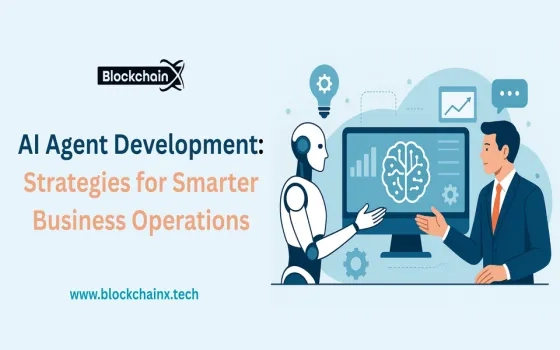Introduction
In the vast landscape of blockchain app development in India, selecting the right company is a pivotal decision that can shape the success of your project. The thriving tech ecosystem in India offers numerous options, making it crucial to navigate wisely. In this article, we delve into the key factors to consider when choosing a blockchain app development company, ensuring a strategic and informed decision that aligns with your project goals.
-
Understanding the Significance of Choosing the Right Blockchain App Development Company
The significance of selecting the right blockchain app development company cannot be overstated. Beyond mere coding skills, a reliable partner brings domain expertise, innovative thinking, and a commitment to understanding your unique business needs. A strategic choice in development teams ensures seamless integration of blockchain technology, enhances security and contributes to the overall success and longevity of your application.
-
The Growing Importance of Blockchain Technology in App Development
As the digital landscape evolves, blockchain technology emerges as a game-changer in app development. Its decentralized and secure nature addresses longstanding challenges, offering transparency and trust. The integration of blockchain in app development not only ensures data integrity but also opens avenues for innovative solutions. Understanding the growing importance of blockchain in app development positions businesses at the forefront of technological advancement, fostering efficiency, and providing a competitive edge in today's dynamic market.
Why Choose a Blockchain App Development Company in India?
Choosing a Top-tier blockchain app development company in India offers a multitude of compelling advantages. India has established itself as a global IT hub, boasting a vast pool of skilled developers and a robust technological infrastructure. Cost-effectiveness is a key factor, as development services in India often come at a fraction of the cost compared to other regions. Additionally, the country's tech firms are renowned for their adaptability and agility, ensuring swift responses to evolving project requirements. Leveraging the expertise of an Indian blockchain app development company not only guarantees high-quality solutions but also taps into a rich ecosystem of innovation and technological prowess.
Overview of India's Role in the Global Blockchain Development Landscape
India has emerged as a significant player in the global blockchain development landscape, shaping the future of decentralized technologies. The country's thriving IT sector, skilled workforce, and cost-effective solutions have positioned it as a preferred destination for blockchain development. Indian companies are at the forefront of creating innovative blockchain applications, spanning finance, healthcare, supply chain, and more. The nation's developers contribute substantially to open-source blockchain projects, fostering collaboration and knowledge-sharing on a global scale. With a conducive environment for technological advancements, India plays a pivotal role in driving the adoption and evolution of blockchain technologies worldwide, influencing the industry's trajectory.
Benefits of Collaborating with Indian Blockchain Development Firms
Collaborating with Indian blockchain development firms offers a myriad of benefits, making it a strategic choice for businesses seeking cutting-edge solutions. First and foremost, cost-effectiveness is a major advantage, as India provides high-quality development services at a fraction of the cost compared to many other regions. The country's vast pool of skilled blockchain developers ensures access to expertise in various platforms and technologies. Additionally, Indian firms are known for their agility and flexibility, enabling quick adaptation to project requirements. The collaborative culture and strong work ethic contribute to efficient communication and project delivery. Overall, partnering with Indian blockchain development firms presents a compelling proposition, combining technical excellence with cost efficiency.
Key Factors to Consider
-
Expertise and Specialization in Blockchain Technology
The foremost consideration is the firm's expertise in blockchain development technology. Assess their proficiency in various blockchain development frameworks, consensus algorithms, and smart contract development. Specialization in relevant domains, such as finance, healthcare, or supply chain management, adds value to your project.
-
Portfolio Analysis: Assessing Past Blockchain Projects
A comprehensive review of the firm's portfolio provides insights into its capabilities. Examine the diversity and complexity of past blockchain development projects, ensuring they align with your project's scope and objectives.
-
Client Reviews and Testimonials
Client feedback offers invaluable perspectives on a development firm's performance. Scrutinize reviews and testimonials to gauge client satisfaction, communication efficiency, and the firm's ability to meet project deadlines.
-
Technological Proficiency: Tools, Frameworks, and Platforms
Evaluate the firm's technological proficiency by examining the tools, frameworks, and platforms they employ. A robust understanding of the latest blockchain development technologies ensures the development of scalable and future-proof solutions.
-
Regulatory Compliance and Security Measures
In the dynamic landscape of blockchain app development services, adherence to regulatory standards is paramount. Ensure the chosen firm follows industry regulations and implements robust security measures to safeguard your project against potential threats and vulnerabilities.
Understanding the Development Process
Embarking on a software development journey requires a nuanced understanding of the development process. It encompasses a series of interconnected stages, each playing a pivotal role in transforming an idea into a functional and efficient application. Navigating through these stages involves collaboration, strategic planning, and an iterative approach to ensure the end product aligns seamlessly with the client's vision and requirements.
-
Initial Consultation and Requirement Analysis
The genesis of a successful development project lies in a thorough initial consultation and requirement analysis. This phase involves close collaboration between the development team and the client to comprehend project goals, expectations, and specific needs. A detailed exploration of requirements sets the foundation for the entire development process, laying the groundwork for subsequent stages such as prototyping and design.
Once requirements are crystallized, the development team moves into the prototyping and design phase. This stage is characterized by the creation of a preliminary model or prototype that visually represents the application's user interface and functionality. Feedback from clients is solicited and incorporated iteratively, refining the design until it aligns precisely with the client's vision while maintaining optimal user experience.
-
Development Phase: Agile Methodology vs. Waterfall Model
The development phase introduces the crucial decision of choosing a development methodology – the agile approach or the waterfall model. Agile emphasizes flexibility and adaptability, allowing for incremental development and continuous client feedback. On the other hand, the waterfall model follows a linear and sequential structure. The choice between these methodologies depends on project complexity, client preferences, and the need for iterative development.
-
Quality Assurance and Testing Procedures
Quality assurance and testing play a pivotal role in ensuring the reliability and functionality of the developed application. Rigorous testing procedures, including unit testing, integration testing, and system testing, are implemented to identify and rectify any potential bugs or inconsistencies. This phase guarantees a robust and stable application that meets industry standards and client expectations.
-
Deployment and Ongoing Support
The culmination of the development process is marked by deployment, where the application is launched for public or restricted use. Post-deployment, ongoing support becomes imperative to address any unforeseen issues, implement updates, and ensure the application's seamless performance. This continuous support enhances user satisfaction and maintains the application's relevance in a dynamic technological landscape. The development process, therefore, extends beyond deployment, fostering a long-term partnership between developers and clients.
Cost Considerations
Navigating the landscape of software development demands a keen understanding of cost considerations. The development process involves various expenses, including personnel, technology, and ongoing support. Establishing a clear budget framework at the outset is crucial, allowing businesses to make informed decisions and avoid unexpected financial hurdles as the project unfolds. Rigorous cost considerations contribute to a streamlined development journey, ensuring that financial parameters align with the envisioned project scope and objectives.
-
Transparency in Pricing Models
A key aspect of a successful collaboration with a development partner lies in the transparency of pricing models. Clear and comprehensive pricing structures foster trust and understanding between the client and the development team. Whether opting for hourly rates, fixed pricing, or a combination, transparent communication about costs ensures that both parties are on the same page. This transparency lays the foundation for a collaborative and mutually beneficial partnership, minimizing the risk of financial surprises down the road.
-
Balancing Cost and Quality: Finding the Right Fit
Balancing cost and quality is a delicate yet essential aspect of the development process. While cost-effectiveness is a priority, it should not come at the expense of compromising the quality of the end product. Striking the right balance requires careful consideration of the project's complexity, timelines, and the expertise of the development team. A nuanced approach that prioritizes both cost efficiency and quality ensures a successful development journey that meets or exceeds client expectations.
-
Hidden Costs to Be Aware Of
Amidst the budgeting process, it is imperative to be aware of potential hidden costs that might lurk beneath the surface. These could include unforeseen technical challenges, additional features requested during development, or post-deployment support requirements. Anticipating and accounting for these hidden costs during the initial budgeting phase helps in creating a more realistic financial plan. A proactive approach towards potential additional expenses ensures that the project stays within budget constraints and delivers value without unexpected financial strains.
Scalability and Future-Proofing
-
Evaluating the Company's Approach to Scalability
A critical aspect of any successful blockchain application development is its ability to scale with evolving demands. When choosing a Best Mobile App development company, it's paramount to evaluate their approach to scalability. This involves assessing their understanding of your project's potential growth and the strategies in place to accommodate increased user loads, transactions, and data. A development team with a proactive approach to scalability ensures that your blockchain application remains robust and performs optimally, even as it scales to meet the demands of a growing user base.
-
Future-Proofing Your Blockchain Application
Future-proofing is an indispensable strategy in the dynamic realm of blockchain technology. As the industry evolves, so do the challenges and opportunities. A forward-thinking development company will integrate features and technologies that anticipate future developments, ensuring your blockchain application stays relevant and competitive. This includes adopting interoperable standards, accommodating potential regulatory changes, and implementing modular architectures that allow for seamless integration of new functionalities. By future-proofing your blockchain application development services, you not only safeguard your investment but also position yourself at the forefront of innovation in the ever-evolving landscape of blockchain technology.
Industry Trends and Innovations
-
Staying Updated on the Latest Blockchain Trends
In the rapidly evolving landscape of blockchain technology, staying abreast of the latest trends is imperative for businesses aiming to harness its full potential. Regularly monitoring industry trends allows for informed decision-making, ensuring that your blockchain applications align with current market demands and user expectations. From decentralized finance (DeFi) development to non-fungible tokens (NFTs), staying updated on trends empowers businesses to make strategic choices that capitalize on emerging opportunities and foster innovation within their projects.
-
Assessing a Company's Adaptability to Emerging Technologies
When selecting a blockchain development company, assessing their adaptability to emerging technologies is a key consideration. The ability to integrate new advancements into existing projects speaks volumes about a company's commitment to innovation. An adaptable development team is well-positioned to leverage the latest tools, frameworks, and methodologies, ensuring that your blockchain applications remain at the forefront of technological progress. This adaptability not only future-proofs your projects but also reflects a commitment to providing clients with cutting-edge solutions that can withstand the test of time in the dynamic and evolving landscape of blockchain technology.
Legal and Regulatory Compliance
-
Navigating the Regulatory Landscape in India
In the realm of blockchain app development, understanding and navigating the regulatory landscape is crucial, particularly in a country like India with its dynamic regulatory environment. Keeping abreast of the legal requirements and compliance standards ensures a smooth development process. Factors such as data protection laws, financial regulations, and evolving government policies can impact the development and deployment of blockchain applications. A development team well-versed in the intricacies of the Indian regulatory landscape is essential for mitigating risks and ensuring that your project aligns seamlessly with legal frameworks.
-
Ensuring Legal Compliance for Blockchain App Development
Ensuring legal compliance is a paramount consideration throughout the blockchain app development lifecycle. From the conceptualization phase to deployment and beyond, adherence to relevant laws and regulations is non-negotiable. This includes data privacy measures, adherence to financial regulations (especially in sectors like fintech), and compliance with emerging blockchain-specific regulations. A diligent approach to legal compliance not only protects the project from legal pitfalls but also establishes a foundation of trust and reliability for both clients and end-users. Engaging with a development team that prioritizes legal considerations demonstrates a commitment to ethical practices and ensures the longevity and success of your blockchain application in the complex legal landscape.
Conclusion
Selecting the right blockchain app development company in India demands a careful balance of technical expertise, adaptability, and legal acumen. The journey involves scrutinizing factors such as scalability, cost considerations, and adherence to regulatory standards. As we recap the key considerations, it is evident that a strategic choice involves understanding the development process intricacies, staying updated on industry trends, and ensuring legal compliance. Making the informed decision requires a holistic approach, considering not only the immediate project needs but also future-proofing for sustained success in the ever-evolving landscape of blockchain technology.




















